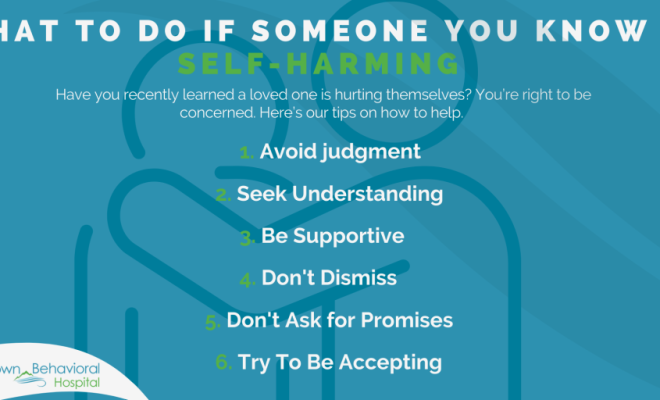How to Tell Someone You Self Harm

Introduction:
Self-harm is a complicated and challenging issue that many people struggle with in silence. Opening up to someone about self-harming can be an incredibly daunting task. However, sharing your experience with someone supportive can provide emotional relief and help on the path to recovery. This article will guide you through the process of telling someone you self-harm, from choosing the right person to approaching the conversation.
1. Choose the right person:
Deciding who to confide in is perhaps one of the most significant decisions when opening up about your struggles. Good options include those with whom you have a close relationship and trust, such as a family member, friend, or therapist. It might be helpful to assess if the person has been empathetic or supportive in past conversations concerning mental health.
2. Prepare yourself emotionally:
Before discussing your self-harm, it’s essential to get in touch with your feelings and emotions surrounding this topic. Reflect on what you hope to achieve from the conversation – do you need support? Advice? Understanding? Preparing emotionally will help guide the conversation toward your desired outcome.
3. Choose an appropriate time and location:
Select a quiet and comfortable location where you can speak without disruptions or time constraints. The surroundings should be conducive for an honest and open conversation – privacy is crucial.
4. Be honest and use descriptive language:
When speaking about self-harm, it is essential to be truthful about your experiences and thoughts. Using descriptive language can help convey what you feel when self-harming happens and why it happens—being clear about both emotional triggers and physical behaviors related to self-harm aids in your listener’s understanding.
5. Emphasize that it’s not their fault:
Often, people might feel guilty or responsible for not noticing the signs of someone experiencing self-harm. Reassure the person you’re talking to that they are not at fault and that you are opening up to receive support and understanding.
6. Focus on your feelings, needs, and hopes for the future:
Explain how self-harming has been a coping mechanism for you, its effects on your life, and what kind of support you would appreciate moving forward. Discussing your needs can help establish clear expectations and goals for both you and the person you’re confiding in.
7. Be patient and prepare for their reaction:
Understand that the news of your self-harm might come as a shock to the person you’re telling. They may react with disbelief, sadness, fear, or even anger. Remain calm and listen to their feelings as well; it’s essential to establish two-way communication.
8. Provide resources and information:
Educating the person about self-harming can help dispel misconceptions, encourage empathy, and promote open-mindedness in the conversation. Sharing informational resources can facilitate further understanding between you both.
Conclusion:
Opening up about self-harm is a brave and necessary step in your journey to healing. Confiding in someone supportive can alleviate emotional burdens and provide a network of understanding and care that encourages recovery. Remember that there is no shame in seeking help; your vulnerability can be a testimonial for your resilience and strength.






